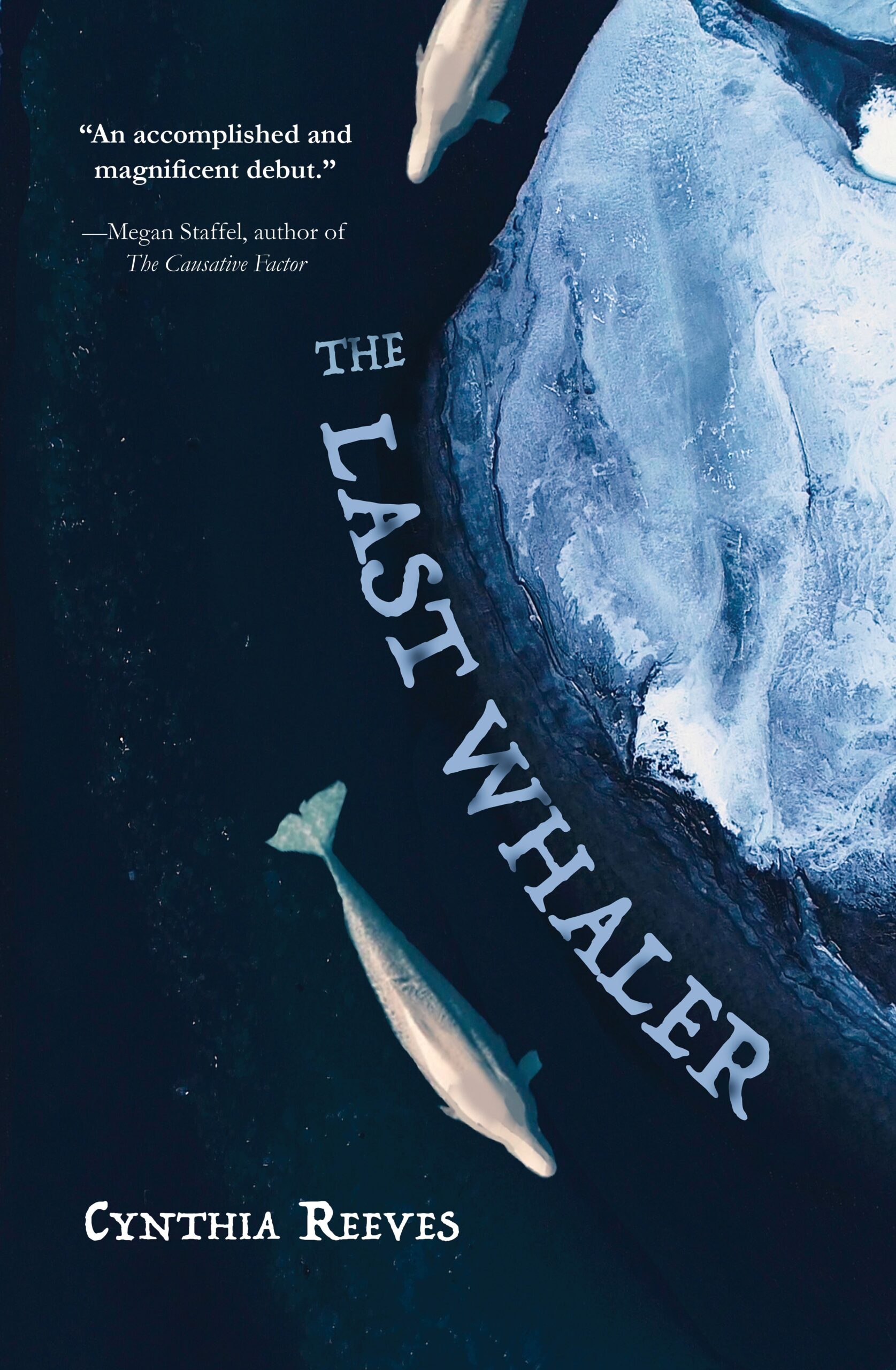
Publisher:
Regal House Publishing
Publication Date:
09/03/2024
Copyright Date:
N/A
ISBN:
9781646035083
Binding:
Paperback
U.S. SRP:
20.95
THE LAST WHALER
By Cynthia Reeves


- Posted by IR Staff
- |

Tor has been whaling his whole life, but it’s only in 1937 that his wife Astrid—a farmer and trained botanist—accompanies him on the hunting season. Both of them still reeling from a recent tragedy, their life is profoundly unsettled by Astrid’s presence amongst the whaling crew and its bloody business. It’s their time alone on the coast, however, that allows them both to re-connect to the natural world, to each other, and to humanity.
Told in a semi-epistolary style, Cynthia Reeves’s THE LAST WHALER portrays the lonely Tor in 1947 as he recounts the events of ten years prior—separated not only by his personal losses, but the immense upheaval of the Second World War. The war itself never intrudes directly on the action, but it looms even in the late ‘30s as the Norwegian characters read newspaper articles about seemingly disparate events: Japanese imperialism in Asia, the Spanish Civil War, and more. The text does an excellent job of connecting these global phenomena to an emotional one: the desire to see violence and change as distant, subordinate to more immediate concerns; and the need to convince oneself that subsistence has to come before any reckoning with powerful, life-changing realities. This is as true of Norwegian whalers before (and during) the war as it is of a husband and wife trying to industriously work their way past grief.
Some of THE LAST WHALER plays out as expected: depictions of the rugged, mercurial landscape, where “petrified waterfalls clung to the high peaks of knife-edged mountains capped with snow” aren’t far off from recent (though overwhelmingly masculine) renderings of the Arctic including The Terror or The North Water. But here, trained botanist Astrid is more keenly attuned to the lifecycle of the land, expertly describing the flowers, weeds, and lichen that support the ecosystem. Astrid’s attentions to plant life are yet another way in which THE LAST WHALER evokes its core themes of loss and grief: “At home, I’d pass it by without a moment’s thought. But here, every growing thing is precious.”
The text brings the same sensibility to its treatment of whaling itself. The aforementioned whaling novels are 19th-century tales, and THE LAST WHALER is set in the mid-20th century—when anti-whaling activism has already begun and the use of whale oil has already precipitously declined. This lends a thorny wistfulness to evocative imagery like a cemetery’s worth of discarded whale bones disappearing under falling snow, or—in a particularly vivid moment—milk spilling from the body of a lactating mother whale and mingling with her blood. When she first enters the tiny cabin that will be her home for months, Astrid is repelled by the stink from rendered whale blubber which has been trapped within. “Imagine such smells lingering like ghosts!” she exclaims. But of course, whale blubber is rendered by the killing and processing of a living thing; such a smell lingers precisely like a ghost. This hauntedness permeates the text.
There aren’t necessarily any surprises here; THE LAST WHALER is deliberately paced, muted at times, and suffused with well-established dread. Rather, it’s the clarity of vision, immense care, and ultimate beauty that will keep readers huddled together with Tor and Astrid through the long, dark winter.
Tense, gripping, and beautiful, Cynthia Reeves’s THE LAST WHALER is a powerful tale of losing and re-discovering one’s humanity through the crucible of grief.
~Dan Accardi for IndieReader

Publisher:
Regal House Publishing
Publication Date:
09/03/2024
Copyright Date:
N/A
ISBN:
9781646035083
Binding:
Paperback
U.S. SRP:
20.95

- Posted by IR Staff
- |

The clash between a will to survive in extreme circumstances and utter despondent grief unfolds with heartbreaking mastery in Cynthia Reeves’s THE LAST WHALER. A couple stranded at an Arctic whaling station in the late 1930s has endured so much before their journey that merely pulling through the ordeal may be more than they can handle. Reeves’s use of poignant letters and journaling to share both sides of the tragedy is powerful in its delicacy.

THE LAST WHALER
Cynthia Reeves
Regal House Publishing
9781646035083
Rated 4.8 / 5 based on 1 review.